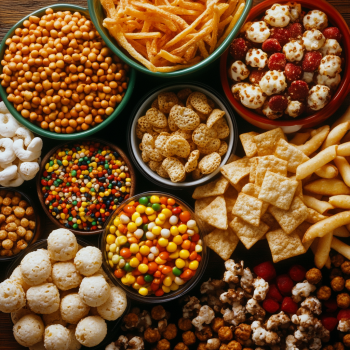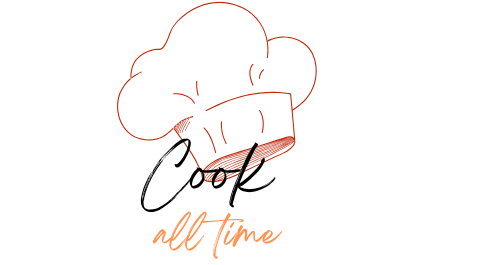Understanding Current Food Recalls
Food recalls have increasingly become a common aspect of consumer safety, and as a result, many people are now asking, “What food is being recalled right now?” Therefore, understanding the reasons behind these recalls and how officials announce them is crucial for staying informed. In this context, this article not only explores the current food recall landscape but also explains why food recalls happen, which agencies are responsible, and the most common causes behind them.
Table of Contents
Introduction about What Food is Recalled Right Now
Food recalls are essential to maintaining public health and safety. Recalls happen when food products are deemed unsafe for consumption due to issues such as contamination, mislabeling, or other hazards. When a product is recalled, it indicates a potential risk to consumers, prompting the manufacturer or supplier to remove the item from store shelves.
You cannot overstate the importance of food recalls. They serve to protect the public from foodborne illnesses, allergens, and other health hazards. Each year, many food products are recalled, and staying updated on current recalls is crucial for consumer safety.
Food recalls also prevent long-term health consequences, which can arise from eating contaminated or improperly labeled food. Moreover, they help maintain public trust in the food supply chain, ensuring consumers that companies and authorities are vigilant about food safety.
How Are Food Recalls Announced? Agencies Involved and Public Notifications
Officials announce food recalls through a variety of channels. The most common methods include press releases, media notifications, and social media platforms. These announcements typically provide detailed information on the recalled products, including the reason for the recall and instructions for consumers on what to do with the affected products.
Moreover, in addition to public notifications, officials also post recalls on government websites.Platforms like the Food and Drug Administration (FDA) and the United States Department of Agriculture (USDA) provide consumers with the latest updates on recalls and help them find out what food is recalled right now.
- Press releases: Government agencies and manufacturers release these to inform the public.
- Social media: Companies and organizations use their social media channels to spread the word.
- Official websites: The FDA and USDA provide real-time updates on their websites.
The Role of the FDA Guidelines for Food Recalls
The Food and Drug Administration (FDA) plays a pivotal role in food recalls, particularly when it comes to non-meat food products. The FDA oversees food safety for a wide range of products, including packaged foods, beverages, dairy products, and more.
When officials find a food product to be unsafe, the FDA works with the manufacturer or distributor to remove the product from stores and inform consumers.. The agency’s guidelines specify that companies must issue recall notices, which include clear details about the product, its potential dangers, and how consumers should handle the recall.
The FDA also works with other health authorities to monitor the situation and prevent further harm to consumers. Their guidelines aim to minimize risks and provide the necessary information to help the public stay safe.
The Role of USDA Addressing Meat and Poultry Products
The United States Department of Agriculture (USDA) has a crucial role when it comes to meat and poultry products. Unlike the FDA, which handles non-meat products, the USDA is responsible for overseeing the safety of meat, poultry, and egg products in the United States.
The USDA quickly initiates recalls whenever any current food products pose a health risk. The agency sets rigorous standards for meat and poultry processing, and if a product fails to meet those standards, it issues a recall.
Key aspects of USDA recall responsibilities include:
- Inspection of meat products: Ensuring the safety of processed meats.
- Notification of recalls: Communicating with manufacturers and the public.
- Preventing contamination: Setting food safety standards to minimize risks.
Common Reasons for Food Recalls Contamination, Mislabeling, and Quality Issues
Food recalls can happen for various reasons, with the most common being biological contamination, mislabeling, and quality issues. Moreover, each of these reasons presents specific risks to consumers, requiring the responsible companies to act quickly to prevent potential harm.
A recall may occur if contamination from bacteria, viruses, or pathogens poses a risk of causing foodborne illnesses. Mislabeling, which includes failing to list allergens or other crucial information on product packaging, can also result in recalls. Lastly, quality issues such as foreign objects in food or spoilage may lead to recalls as well.
Consumers must stay vigilant about these risks and regularly check updated recall information to stay informed about current food recalls. Regularly checking government websites and other official sources can help people protect their health.
Biological Contamination Bacteria, Viruses, and Pathogens in Food
Biological contamination is one of the most significant reasons for food recalls. This occurs when harmful microorganisms, such as bacteria, viruses, or parasites, contaminate food products. Some of the most common culprits behind foodborne illness outbreaks include Salmonella, E. coli, Listeria, and Norovirus.
These pathogens can cause serious health issues, particularly in vulnerable populations such as young children, the elderly, pregnant women, and individuals with weakened immune systems. Contamination can happen during any stage of food production, from farm to table.
- Salmonella: Often found in eggs, poultry, and dairy products.
- E. coli: Common in raw or undercooked ground beef.
- Listeria: Found in deli meats, soft cheeses, and unpasteurized products.
When agencies like the FDA and USDA detect biological contamination, they swiftly issue recalls to prevent widespread illness and injury..
Undeclared Allergens Labeling Errors and Risks to Consumers
Undeclared allergens are another common cause of food recalls. Food labels must list all potential allergens, such as peanuts, tree nuts, dairy, and soy. However, due to labeling errors or cross-contamination, some food products may not accurately reflect their ingredients.
This can pose serious risks to individuals with food allergies. For example, a product may contain peanuts, but the label fails to list it as an ingredient. If a consumer with a peanut allergy eats the product, it could result in a severe allergic reaction, or even anaphylaxis.
The recall process for undeclared allergens typically involves:
- Immediate removal of the product from store shelves.
- Clear labeling updates to inform consumers.
- Public notifications to raise awareness of the recall.
Consumers should always exercise caution when reading food labels, and those with allergies should regularly check for recalled foods to avoid potential risks.
Current List of Food Recalls What Food is Recalled Right Now?
The food recall landscape in December 2024 has seen several important alerts, highlighting the ongoing concern over food safety. Many consumers are asking, “What food is recalled right now?” It’s important to stay informed as these recalls are issued to protect consumers from health risks such as contamination and mislabeling. These recalls can affect everyday items, making it essential to keep track of the latest alerts. Notable companies have recalled several food products this month.
For more on related safety updates, visit the ground beef recalls section for insights into specific product types under scrutiny.
Safety concerns have impacted several products, particularly packaged foods and ready-to-eat meals.. Food recalls, though varying in scope and reason, all have one thing in common: they aim to reduce health risks associated with contaminated or mislabeled products.
Products with Undeclared Allergens Examples and Prevention Measures
One of the common reasons for food recalls is undeclared allergens. In December 2024, manufacturers recalled various products for failing to properly list allergens, which can lead to serious allergic reactions. For instance, manufacturers found traces of undeclared nuts in certain snack foods and baked goods.
When consumers with nut allergies consume these products, they risk dangerous health outcomes, including anaphylaxis. To prevent such occurrences, food companies must legally list all common allergens on their labels.. If a product contains an allergen not included in the list, it is subject to recall.
- Common allergens: Peanuts, tree nuts, soy, dairy, wheat, eggs, fish, and shellfish.
- Prevention measures: Proper labeling and contamination control during manufacturing.
Additionally, staying informed about current food recalls and consistently checking product labels can help minimize these risks.
Recalls Due to Contamination Bacterial Outbreaks in Popular Items
Another significant reason for food recalls involves contamination, especially bacterial contamination. In December 2024, several popular food products were recalled due to outbreaks of harmful bacteria like Salmonella and E. coli. These pathogens can cause severe foodborne illnesses, and their presence in food products is a serious public health concern.
For example, authorities recalled packaged lettuce and other raw vegetables after discovering Salmonella contamination. Similarly, they recalled several batches of ground beef due to links with E. coli outbreaks.. The FDA and USDA quickly intervened, issuing recalls to prevent further illnesses.
- Common contaminants: Salmonella, E. coli, Listeria.
- Prevention: Proper food handling, cooking at the correct temperature, and good hygiene.
Consumers should regularly check for the latest updates on food recalls to stay safe from these threats.
What to Do If You Have Recalled Food Steps for Consumers
If you discover that you have consumed or purchased a recalled product, it’s crucial to take immediate action. The first step is to confirm whether the food item in your possession is part of the recall. Fortunately, many brands and government agencies provide clear instructions on how to check for affected products.
If you find a recalled product in your pantry, take the necessary steps to protect your safety. Typically, manufacturers or regulatory agencies will provide instructions for handling the product, whether that involves returning it to the store or disposing of it safely.
Check Your Pantry Identifying Affected Products
To determine if a product you’ve purchased is part of a recall, begin by checking the packaging for specific identifying details. Look for the product’s batch number, expiration date, or UPC code. Recall announcements often include these details.
If you’re unsure whether a product is included, visit the FDA or USDA websites for a list of recalled items, or check social media channels and news outlets where recalls are frequently announced.. It’s essential to verify this information, as consuming a recalled product could lead to health risks.
- Steps to identify recalled products:
- Look for batch numbers and expiration dates.
- Check government websites or recall alerts.
- Contact the retailer or manufacturer for clarification.

Staying updated on current food recalls helps you protect yourself and your family from potential harm.
Returning or Disposing Safely Refund Policies and Safe Disposal Guidelines
If you discover that the food you have is part of a recall, the next step is to follow the proper protocol for returning or disposing of the product. Manufacturers typically offer refunds or replacements for recalled items. Check with the store where you bought the product or visit the manufacturer’s website for return instructions.
If the food is deemed a health risk, you may be instructed to dispose of it safely.. This could involve sealing the product in a plastic bag and discarding it in a trash bin to prevent others from consuming it.
- Steps for returning:
- Check refund or replacement guidelines.
- Visit the store or manufacturer’s website for instructions.
- Save your receipt for easy returns.
It’s vital to handle these products responsibly to prevent further exposure or contamination. Also, keep checking for updates on current food recalls to stay informed about product safety.
FAQs About What Food is Recalled Right Now?
Q1: How can I find out what food is recalled right now?
You can check recall websites like the FDA, USDA, or recall-specific news sources. These platforms provide real-time updates on food recalls and include product details, affected regions, and steps for consumers to follow.c
Q2: Are food recalls common?
Yes, food recalls are fairly common, and they happen for various reasons including contamination, mislabeling, and quality issues. It’s important to stay informed about potential recalls for the safety of you and your family.
Q3: What should I do if I already ate a recalled product?
If you have already consumed a recalled food product, monitor your health closely for any symptoms. Contact a healthcare professional if you experience any unusual symptoms. The next step would be to stop eating the product and report the issue to the appropriate health authorities.
Conclusion About What Food is Recalled Right Now
Food recalls are an important part of the food safety system, ensuring that potentially hazardous products are quickly removed from circulation to protect public health. By staying informed about what food is recalled right now, consumers can take appropriate actions to safeguard their health. Whether the recall is due to undeclared allergens, contamination, or other issues, knowing the steps to take is crucial for minimizing risks.
Always remember to check product labels, stay up to date with recalls, and follow the manufacturer’s guidelines on returning or disposing of recalled items. By staying vigilant, consumers can avoid potential health risks and contribute to a safer food environment.

